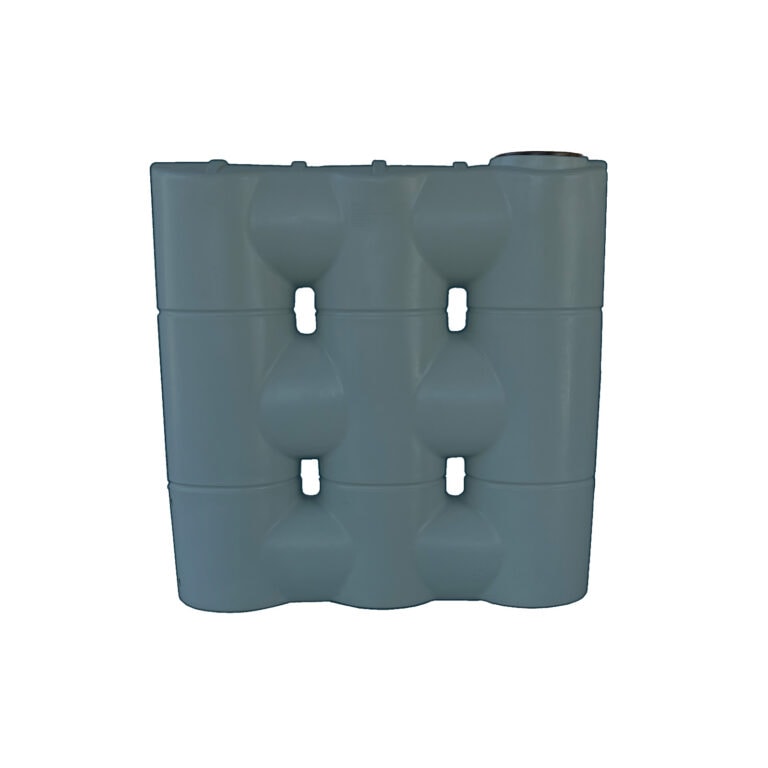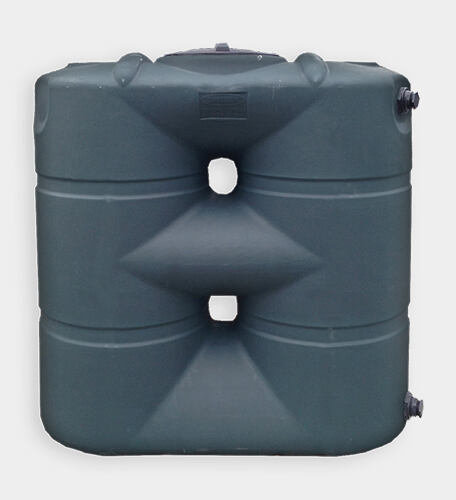Discovering the Different Usages of Rain Containers for Residential and Commercial Residences
As the global focus on lasting living techniques proceeds to increase, the application of rainwater storage tanks in both domestic and commercial settings has actually arised as a pertinent option. The multifaceted usages of rainwater storage tanks provide a compelling situation for their adoption, not just as a sensible water-saving procedure however also as a testimony to accountable resource management.
Benefits of Utilizing Rainwater Containers
Making use of rainwater containers supplies numerous benefits for both homes and communities in regards to water conservation and sustainability. Among the essential benefits of utilizing rainwater storage tanks is the significant decrease in reliance on keys supply of water - Slimline water tanks. By recording and keeping rain for later use, people and neighborhoods can lower their demand for cured water, eventually reducing the concern on water therapy facilities and lowering energy intake related to water transportation and treatment
Moreover, rainwater collecting through containers gives a dependable alternate water resource during times of water limitations or scarcities. This stored rain can be used for numerous non-potable purposes such as watering, purging toilets, and washing clothing, lowering the strain on standard water resources. Additionally, using rain containers can lead to cost savings for both families and areas by lowering water bills and reducing the demand for pricey infrastructure expansions to satisfy expanding water needs.
Fundamentally, the utilization of rain containers provides a lasting and eco-friendly method to water monitoring, benefiting both individual users and the wider area in regards to water preservation, cost-efficiency, and strength.
Rain Storage Tank Usage in Irrigation
Provided the benefits of rainwater tanks in saving water resources and decreasing reliance on mains supply of water, a considerable application depends on using kept rainwater for irrigation functions - Slimline water tanks. Rainwater gathering systems can effectively gather and store rain, giving a lasting water resource for watering gardens, lawns, and agricultural areas. By making use of rain for irrigation, building proprietors can minimize their reliance on treated water resources, bring about set you back savings and environmental advantages

Among the primary advantages of making use of rainwater for watering is its purity. Rainwater is normally soft and free from the chemicals and additives typically discovered in keys water, making it optimal for beneficial plants without the risk of damaging results. In addition, rainwater is at ambient temperature level, which can profit plant development by avoiding temperature level shocks that can accompany cool mains water.
Rainwater Storage Tanks for Bathroom Flushing

Applying rainwater tanks for bathroom flushing is an affordable and eco-friendly method that can be conveniently integrated right into both domestic and business residential properties. The kept rainwater can be utilized to purge bathrooms by attaching the storage tank to the existing pipes system. This basic yet reliable remedy can considerably lower water usage in a structure, particularly in locations where my blog water deficiency is a problem.

Including Rain Storage Tanks in Landscaping
These storage tanks can record and keep rain drainage from roofing systems, which can after that be utilized for sprinkling gardens, grass, and plants. By making use of rainwater for irrigation objectives, residential property owners can minimize their reliance on local water resources, leading to cost financial savings and preservation of valuable water sources.
In addition to giving a sustainable water resource for landscape design needs, rain containers can also aid in handling stormwater drainage. By capturing rain that would certainly otherwise stream Go Here right into tornado drains, these storage tanks can minimize erosion, decrease flooding threats, and prevent contamination of all-natural water bodies. Integrating rainwater storage tanks in landscape design can add to the total aesthetic appeal of the home, showcasing a dedication to ecological stewardship.
Business Applications of Rain Tanks
Making use of rainwater tanks in commercial setups uses a sustainable solution for water management and conservation, benefiting organizations and the setting alike. One essential commercial usage is for irrigation purposes, where collected rain can be used to water landscape design, yards, and agricultural areas surrounding business buildings.
In addition, rainwater tanks can be incorporated into the fire reductions systems of industrial structures. By having a devoted water resource for firefighting functions, services can improve their fire safety actions and potentially reduce insurance costs. Additionally, rain collected in storage tanks can be treated and made use of for non-potable purposes within industrial residential or commercial properties, such as flushing commodes, cleaning, and cooling down systems. This not just conserves fresh water resources however additionally lowers operating expense for businesses. Generally, the incorporation of rainwater containers in commercial settings offers a practical and ecologically liable approach to water administration.
Conclusion
In final thought, rain containers supply numerous benefits for both property and business buildings. From irrigation to bathroom flushing and landscape design, making use of rain containers can aid preserve water sources and minimize water bills. Furthermore, integrating rain storage tanks in industrial settings can result in significant cost savings and environmental benefits. Overall, the versatility and sustainability of rain containers make them a beneficial financial investment for any type of property proprietor seeking to boost water effectiveness.